
-
 Three Russia-themed anti-war films shortlisted for Oscars
Three Russia-themed anti-war films shortlisted for Oscars
-
US oil blockade of Venezuela: what we know
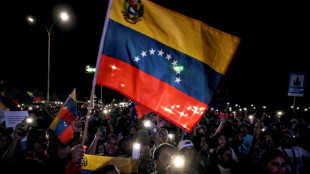
-
 Palace boss Glasner says contract talks on hold due to hectic schedule
Palace boss Glasner says contract talks on hold due to hectic schedule
-
Netflix to launch FIFA World Cup video game
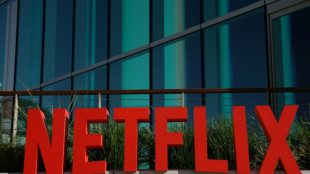
-
 Venezuela says oil exports continue normally despite Trump 'blockade'
Venezuela says oil exports continue normally despite Trump 'blockade'
-
German MPs approve 50 bn euros in military purchases

-
 India v South Africa 4th T20 abandoned due to fog
India v South Africa 4th T20 abandoned due to fog
-
Hydrogen plays part in global warming: study

-
 EU's Mercosur trade deal hits French, Italian roadblock
EU's Mercosur trade deal hits French, Italian roadblock
-
What next for Belarus after US deal on prisoners, sanctions?
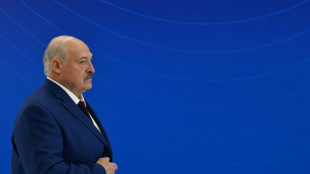
-
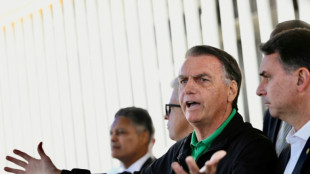 Brazil Senate debates bill that could slash Bolsonaro jail term
Brazil Senate debates bill that could slash Bolsonaro jail term
-
Coe shares 'frustration' over marathon record despite Kenyan's doping ban
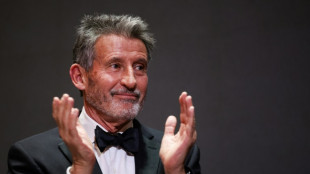
-
 Stolen Bruce Lee statue 'returns' to Bosnia town
Stolen Bruce Lee statue 'returns' to Bosnia town
-
Veteran Suarez signs new Inter Miami contract

-
 Warner Bros rejects Paramount bid, sticks with Netflix
Warner Bros rejects Paramount bid, sticks with Netflix
-
Crude prices surge after Trump orders Venezuela oil blockade
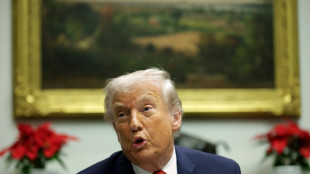
-
 Balkan nations offer lessons on handling cow virus sowing turmoil
Balkan nations offer lessons on handling cow virus sowing turmoil
-
French readers lap up Sarkozy's prison diaries
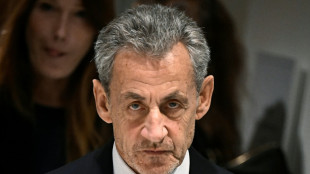
-
 UK PM warns Abramovich 'clock is ticking' over Chelsea sale fund
UK PM warns Abramovich 'clock is ticking' over Chelsea sale fund
-
Warner Bros. Discovery rejects Paramount bid

-
 Winners of 2026 World Cup to pocket $50 million in prize money
Winners of 2026 World Cup to pocket $50 million in prize money
-
World no. 1 Alcaraz ends 'incredible ride' with coach Ferrero

-
 World number one Alcaraz announces 'difficult' split with coach Ferrero
World number one Alcaraz announces 'difficult' split with coach Ferrero
-
Iran boxer sentenced to death at 'imminent' risk of execution: rights groups

-
 Snicko operator admits error that led to Carey's Ashes reprieve
Snicko operator admits error that led to Carey's Ashes reprieve
-
Finland PM apologises to Asian countries over MPs' mocking posts

-
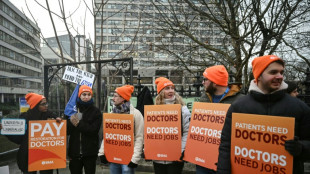 Doctors in England go on strike for 14th time
Doctors in England go on strike for 14th time
-
Romania journalists back media outlet that sparked graft protests

-
 Rob Reiner's son awaiting court appearance on murder charges
Rob Reiner's son awaiting court appearance on murder charges
-
Ghana's Highlife finds its rhythm on UNESCO world stage

-
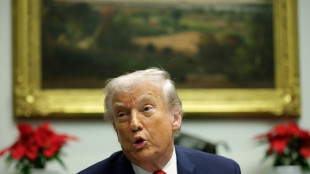 Stocks gain as traders bet on interest rate moves
Stocks gain as traders bet on interest rate moves
-
France probes 'foreign interference' after malware found on ferry
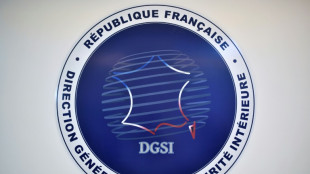
-
 Europe's Ariane 6 rocket puts EU navigation satellites in orbit
Europe's Ariane 6 rocket puts EU navigation satellites in orbit
-
Bleak end to the year as German business morale drops
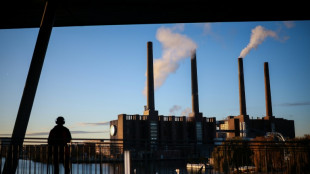
-
 Hundreds queue at Louvre museum as strike vote delays opening
Hundreds queue at Louvre museum as strike vote delays opening
-
Bondi shooting shocks, angers Australia's Jewish community

-
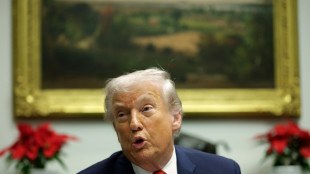 Markets rise even as US jobs data fail to boost rate cut bets
Markets rise even as US jobs data fail to boost rate cut bets
-
Senegal talisman Mane overcame grief to become an African icon

-
 Carey pays tribute to late father after home Ashes century
Carey pays tribute to late father after home Ashes century
-
'Many lessons to be learned' from Winter Games preparations, says ski chief
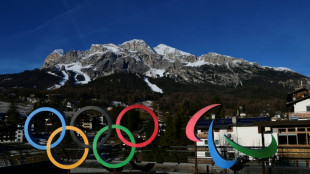
-
 Emotional Carey slams ton to give Australia upper hand in 3rd Ashes Test
Emotional Carey slams ton to give Australia upper hand in 3rd Ashes Test
-
Asian markets mixed as US jobs data fails to boost rate cut hopes
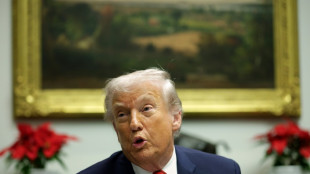
-
 Carey slams ton as Australia seize upper hand in third Ashes Test
Carey slams ton as Australia seize upper hand in third Ashes Test
-
Bondi shooting shocks, angers Australia Jewish community

-
 Myanmar junta seeks to prosecute hundreds for election 'disruption'
Myanmar junta seeks to prosecute hundreds for election 'disruption'
-
West Indies hope Christmas comes early in must-win New Zealand Test

-
 Knicks beat Spurs in NBA Cup final to end 52-year trophy drought
Knicks beat Spurs in NBA Cup final to end 52-year trophy drought
-
Khawaja revels in late lifeline as Australia 194-5 in 3rd Ashes Test

-
 Grief and fear as Sydney's Jewish community mourns 'Bondi rabbi'
Grief and fear as Sydney's Jewish community mourns 'Bondi rabbi'
-
Trump orders blockade of 'sanctioned' Venezuela oil tankers


UN slams 'aggressive' formula milk marketing
The United Nations slammed baby formula makers Wednesday for "unethical" marketing strategies, accusing them of aggressively targeting expecting parents and health workers and putting shareholder interests before children's health.
It is widely recognised that breastfeeding carries huge health benefits.
But countries' failure to crack down on the marketing of breast milk substitutes means far too many children are still being reared on formula, the World Health Organization and the UN children's agency Unicef warned, in a new report.
It found that the $55-billion formula milk industry systematically deploys aggressive marketing strategies, spending up to $5 billion a year to sway parents' decisions on how to feed their infants.
"This report shows very clearly that formula milk marketing remains unacceptably pervasive, misleading and aggressive," WHO chief Tedros Adhanom Ghebreyesus said in a statement.
Unicef chief Catherine Russell called for "robust policies, legislation and investments in breastfeeding to ensure that women are protected from unethical marketing practices".
Experts have long extolled the health benefits of breastfeeding, saying that breast-fed children are healthier, perform better on intelligence tests and are less likely to be overweight or suffer from diabetes later in life.
Women who breastfeed also have a reduced risk of breast and ovarian cancer, research shows.
- 'Marketing is everywhere' -
But despite the known benefits, only 44 percent of babies under the age of six months are exclusively breastfed, as recommended by the WHO and Unicef.
And while global breastfeeding rates have increased little in the past two decades, the sale of formula milk has more than doubled over the same period, Wednesday's report said.
Lead report author Nigel Rollins, of the WHO's maternal, newborn, child and adolescent health division, blamed the industry's aggressive marketing practices.
"We see marketing everywhere," he told AFP, pointing to targeted digital messaging, promotional gifts to new parents, and even efforts to turn health professionals into a "conduit for messages about formula".
The report, which surveyed 8,500 parents and pregnant women and 300 health workers across eight countries in various regions of the world, found that more than half of parents and pregnant women said they had been targeted with formula marketing.
In Britain, 84 percent of all women surveyed said they had been exposed to such marketing, while a full 97 percent in China had, "increasing their likelihood of choosing formula feeding," the UN agencies said.
- Pseudoscience -
Rollins pointed to how companies use pseudoscience to suggest that breast milk is not enough on its own or that formula does a better job of helping babies to sleep through the night.
"Children or babies crying, not sleeping, are very worrisome to parents, and the industry uses those moments to say our product is the solution for your problem," he said.
Wednesday's report voiced particular concern about marketing targeting of health care professionals with free samples, promotional gifts, research grants, and paid conferences.
Over a third of the women surveyed said a health worker had recommended a specific brand of formula to them, it found.
Rollins stressed the goal was not to clear store shelves of formula, acknowledging that breast feeding is not an option for all parents.
But he insisted far more needed to be done to ensure adherence to an international code of conduct adopted by the World Health Assembly back in 1981, demanding that formula not be marketed or distributed in a way that interferes with the promotion of breastfeeding.
Wednesday's report did not name specific companies, painting the problem as an industry-wide issue.
Nestle, the world's biggest formula maker, meanwhile insisted to AFP that it was "highly compliant with the WHO Code".
The Switzerland-based company pointed out that it was "voluntarily stopping promoting formula for infants 0-6 months across the world by year end", including in the United States, Canada and Japan, countries that have no regulation on the issue.
Nestle said it supported "the adoption of laws on marketing of infant formula in all countries", adding that it was "ready to work with WHO, Unicef and others to make this happen".
F.Cardoso--PC
